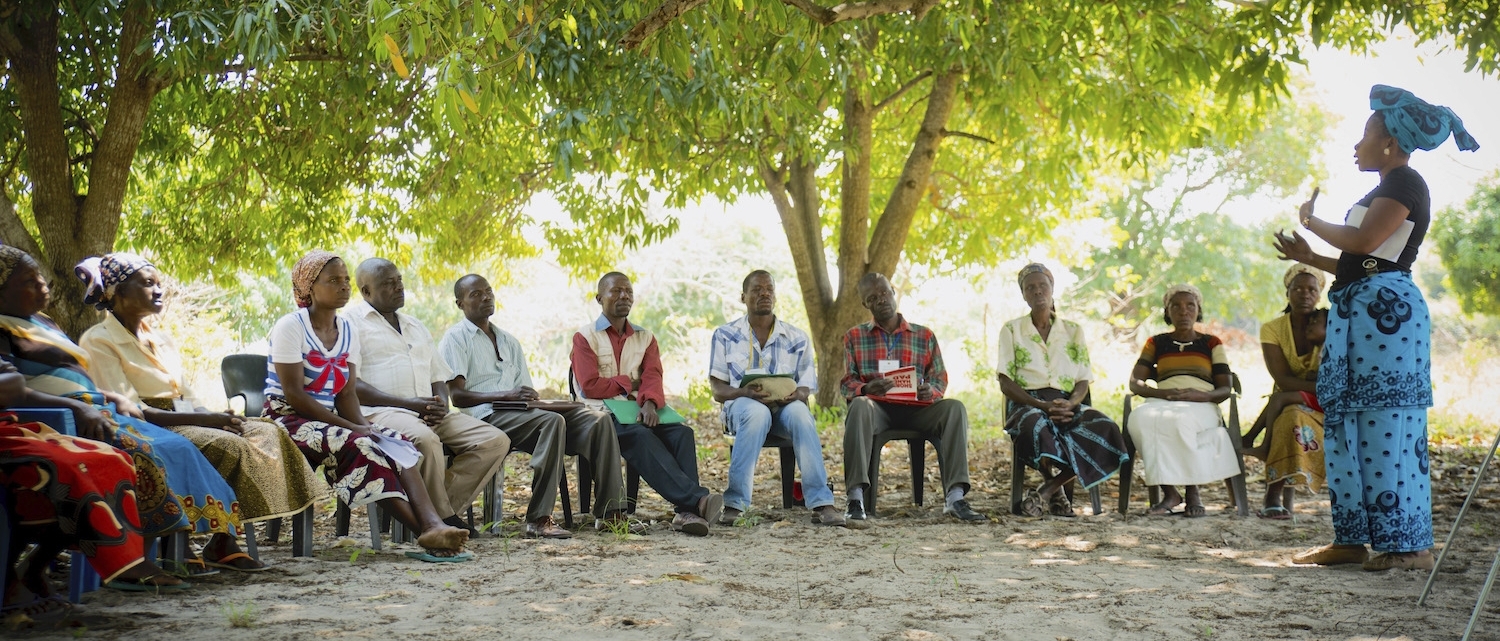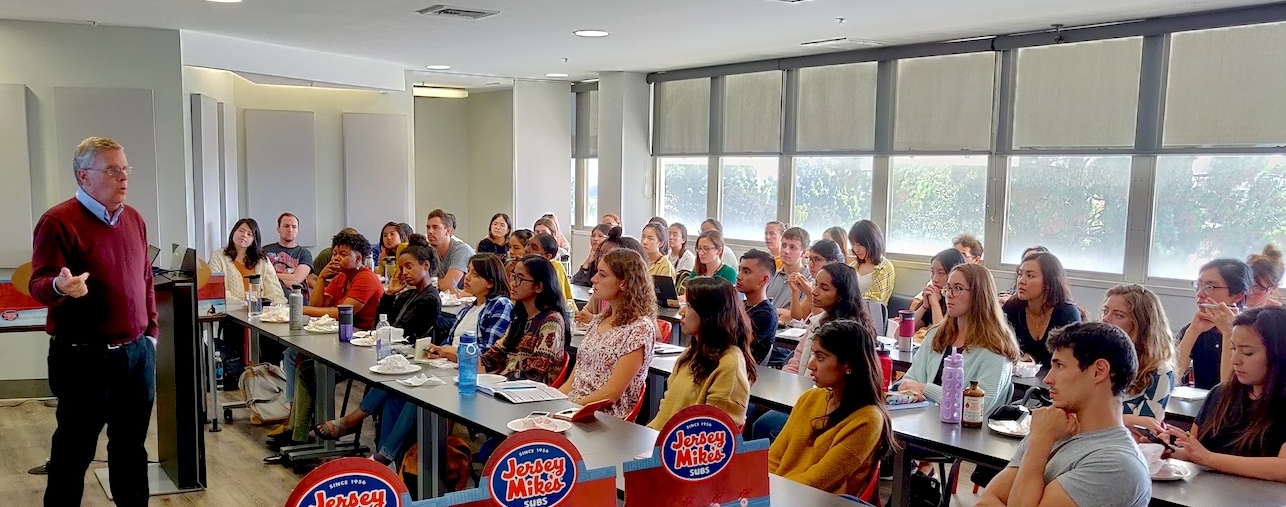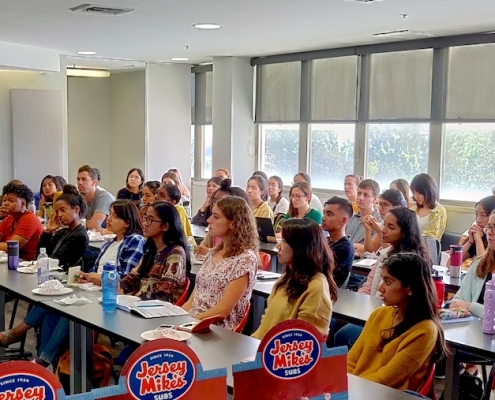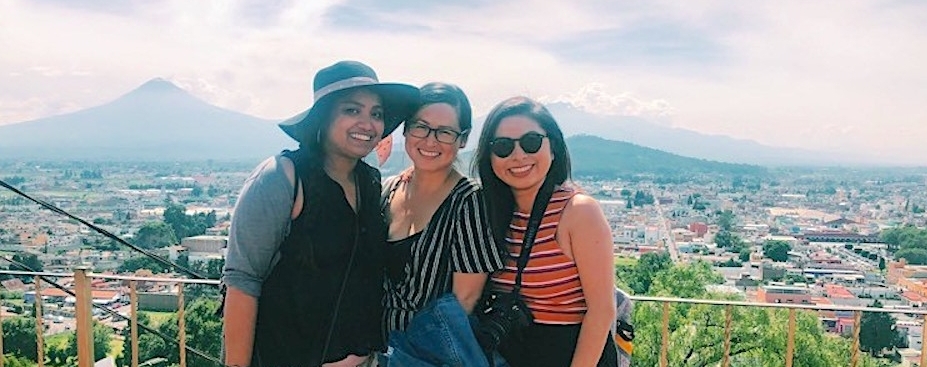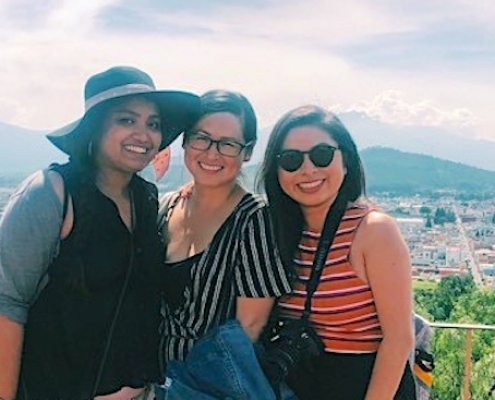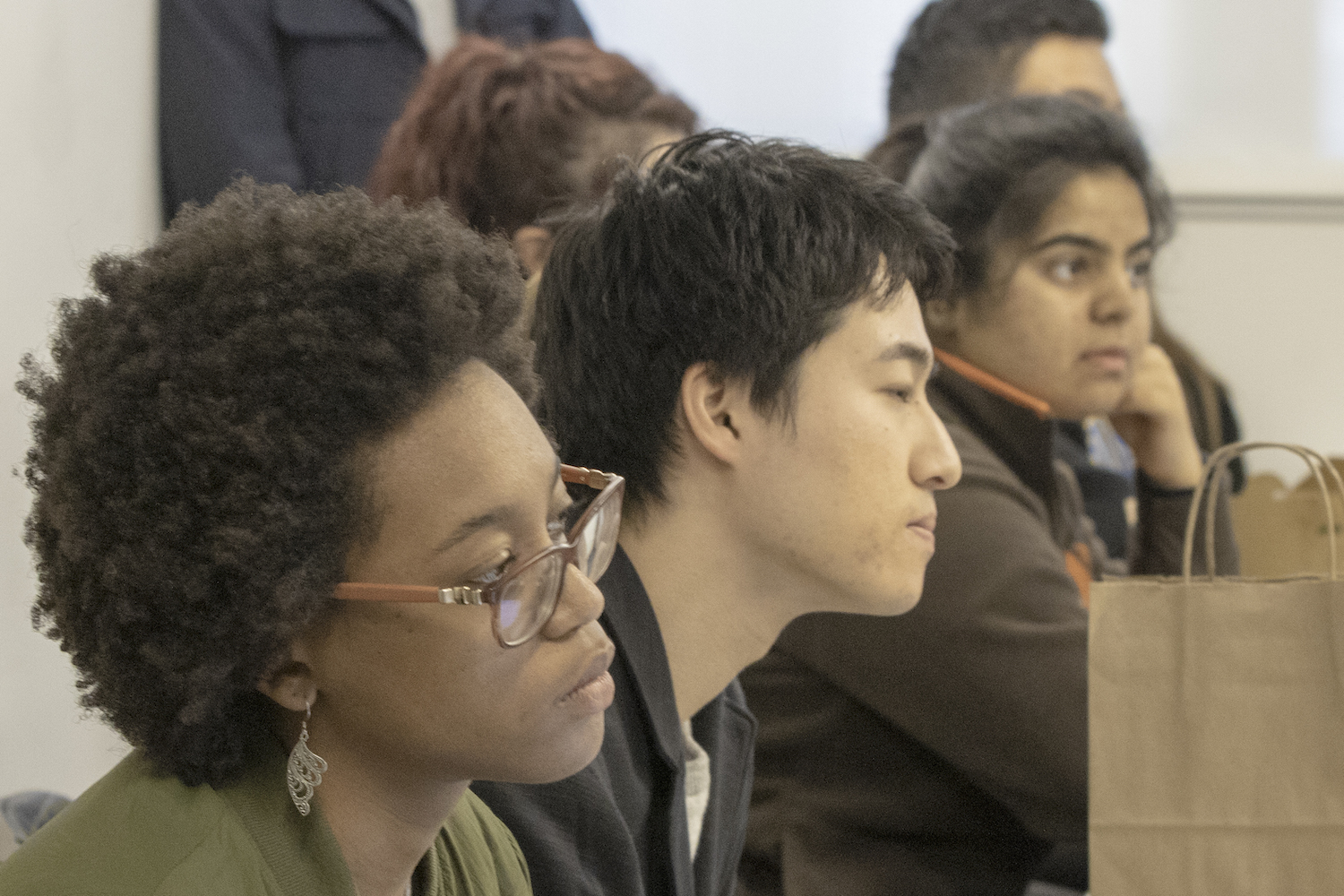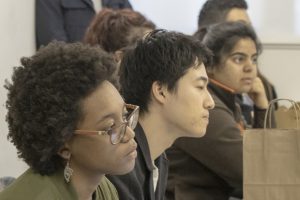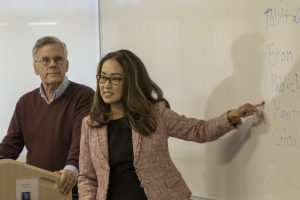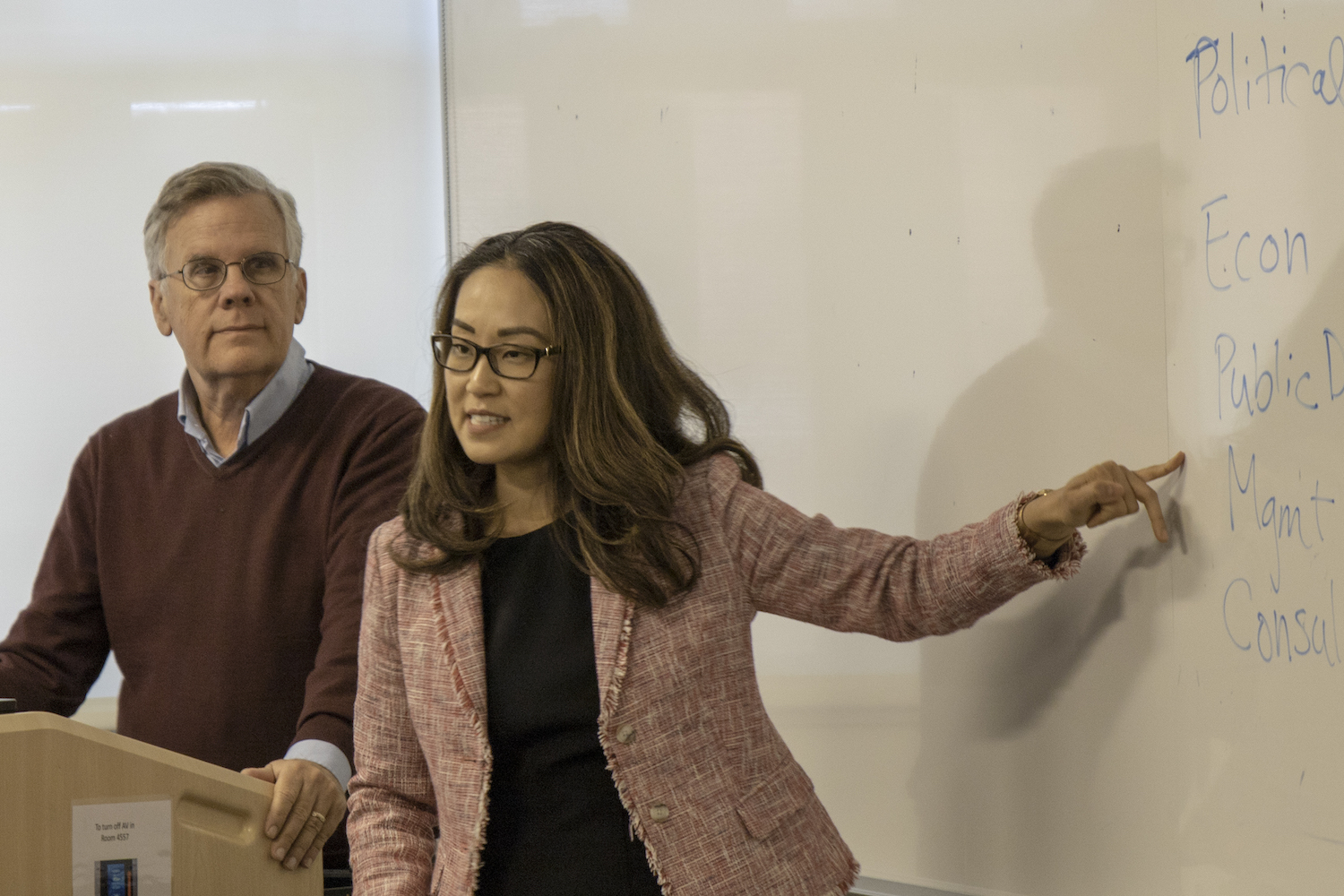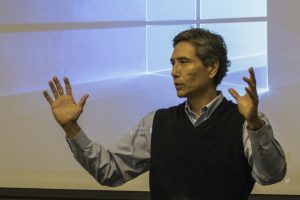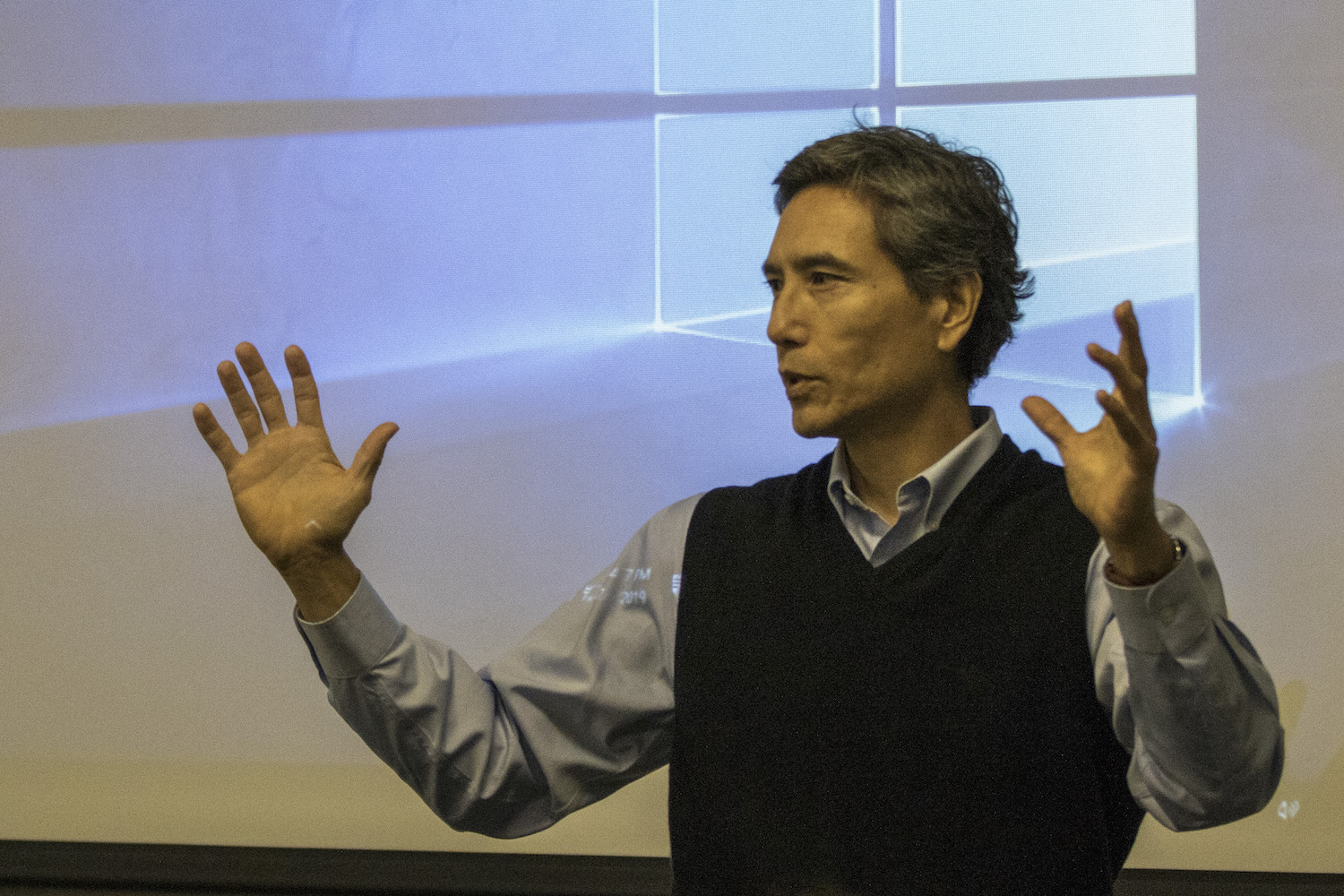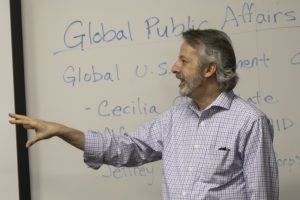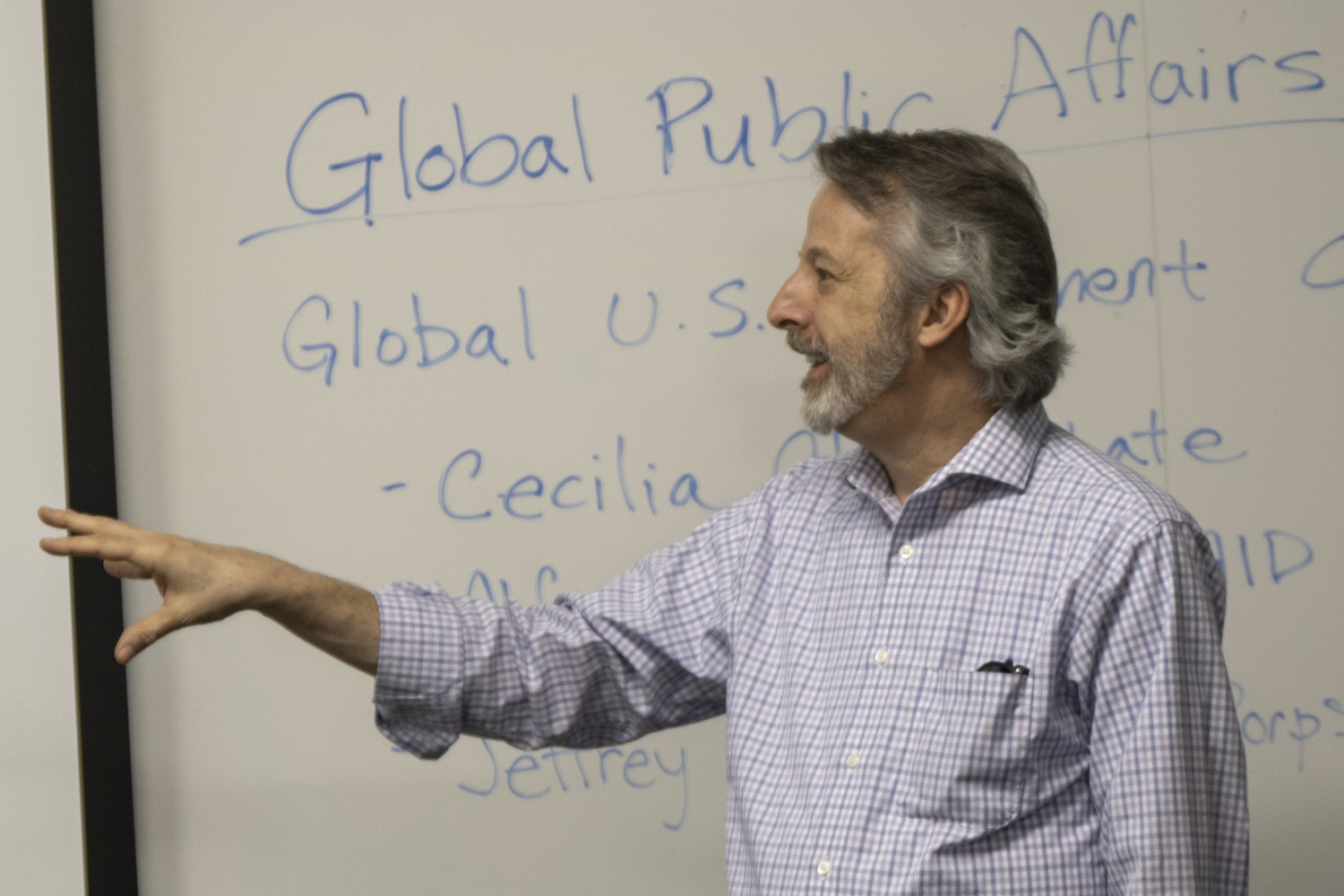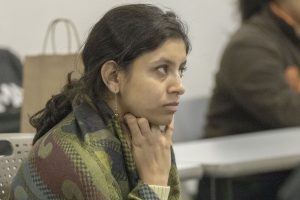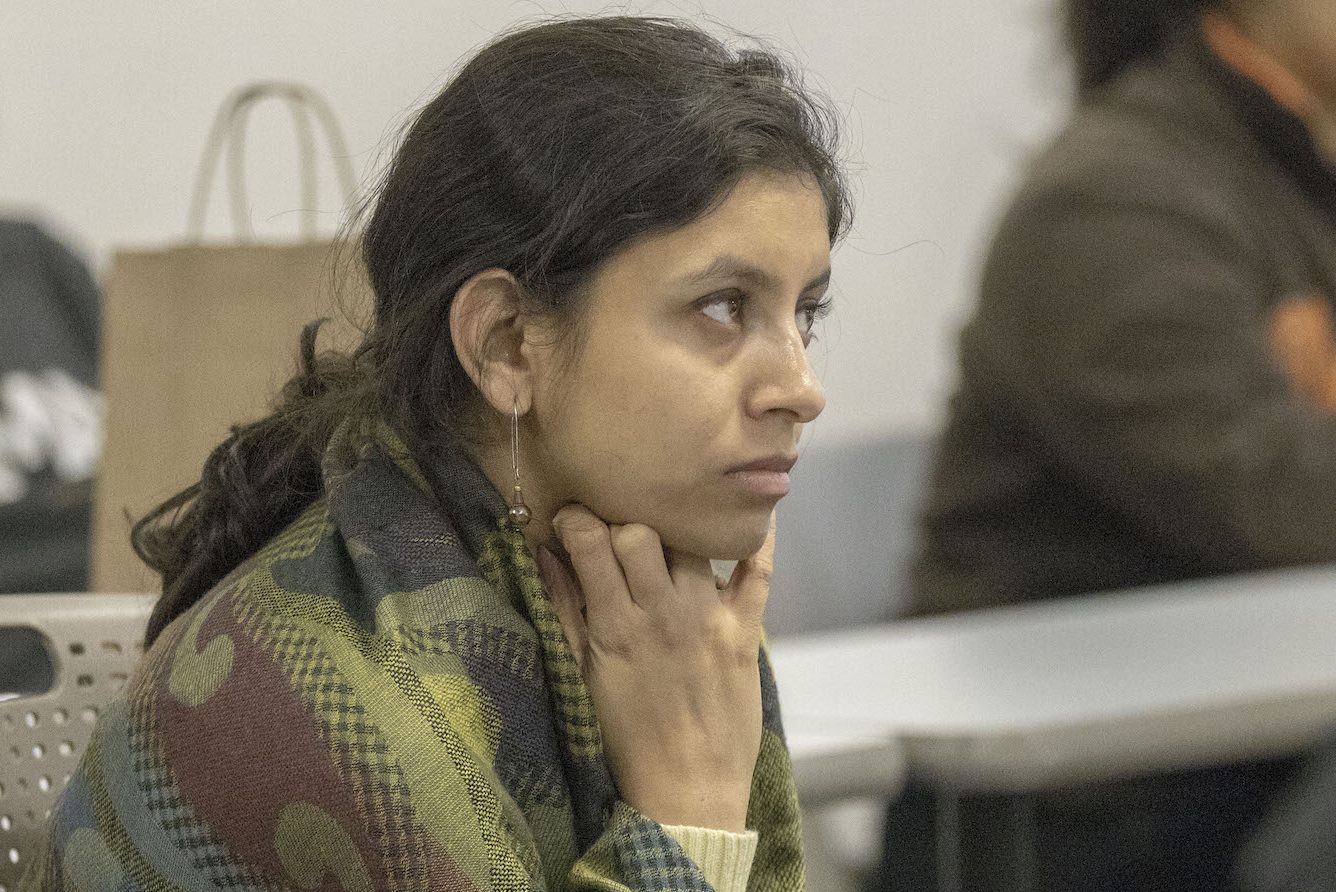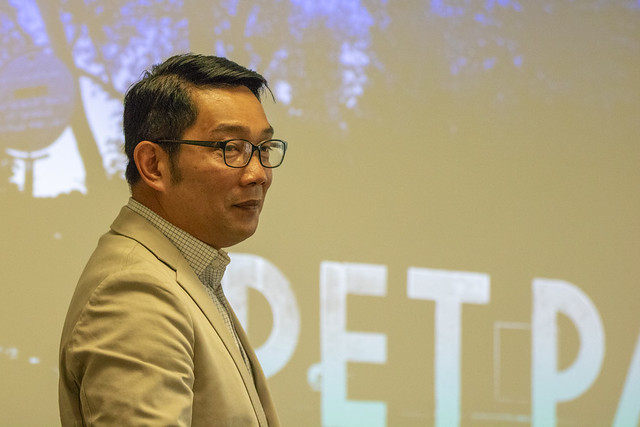By Zoe Day
Global Public Affairs at UCLA Luskin hosted an informational session for students wanting to learn more about career paths and opportunities in U.S. government and international development. The Feb. 7 event featured guest speakers Cecilia Choi from the State Department, Alfred Nakatsuma of the United States Agency for International Development (USAID) and Jeffrey Janis from the Peace Corps. The three shared personal experiences, answered questions about their respective sectors, and advised students how to pursue futures in international development and government.
Choi, U.S. State Department diplomat in residence, discussed the availability of careers in diplomacy, stressing the benefits of combining humanities and writing skills with technical backgrounds in IT or STEM.
“You have one life to do something meaningful,” said Choi, who has served as the director of trade and investment at the National Security Council, deputy director in the State Department’s Bureau of Oceans and International Environmental and Scientific Affairs, and food safety advisor at the Bureau of Economic and Business Affairs. Now a visiting fellow at UCLA recruiting talent for careers in public service and global affairs, Choi is a valuable resource for students interested in learning more about diplomacy and government careers.
As a USAID diplomat in residence who has served in Asia, Latin America and Washington, D.C., Nakatsuma highlighted the development side of foreign policy. The agency aims to lift lives and build communities through development assistance abroad, he said, adding “[USAID] isn’t a job. It’s a life.”
Nakatsuma said the plethora of specialties within international development include humanitarian assistance, female empowerment, energy access, global health, education, innovation and technology, clean water and more. For undergraduates interested in international development, Nakatsuma recommended, “Figure out what you love to do and what pulls you. Figure out what kind of thing you’d like to do in a developing country. Develop skills, take classes, expose yourself to real-world applications, learn how development works.”
Nakatsuma will be returning to UCLA during spring quarter.
Janis is a returned Peace Corps volunteer who currently works as the UCLA Peace Corps campus recruiter. The Peace Corps requires a 27-month commitment to work abroad, during which volunteers are strongly encouraged to “live at the local level,” Janis said. With 70% of Peace Corps volunteers in their 20s, many returnees go on to pursue careers in foreign service, including with the State Department and USAID.
Volunteering for the Peace Corps demonstrates “capacity to work with other cultures,” which is essential to careers in international development, said Janis, who also spent years in the nonprofit sector.
His time in Ukraine with the Peace Corps was “the best experience of [his] life” despite the difficulties, Janis said. It’s “the toughest job you’ll ever love.”
Janis is available in the UCLA Career Center to help students interested in volunteering for the Peace Corps through the application process.
Choi, Nakatsuma and Janis also discussed scholarship and fellowship opportunities within their respective organizations. They included the State Department’s Thomas R. Pickering Foreign Affairs Fellowship, which offers financial support for recipients in graduate school, guarantees two internships in Washington, D.C., and at an embassy overseas, and includes a five-year employment contract as a Foreign Service Officer. Among the students attending the Global Public Affairs event was Ankhet Holmes, a second-year Public Policy student at UCLA and 2016 Pickering Fellow.
The Charles B. Rangel Graduate Fellowship also supports graduate students interested in pursuing a career in the State Department’s Foreign Service Office. USAID offers the Donald M. Payne International Development Fellowship for graduate students interested in working in international development, and the Peace Corps offers scholarships of up to $70,000 for volunteers who attend graduate school.
Choi also had advice for undergraduates, urging them to gain work, leadership and volunteer experience in preparation for careers in government and international development.
View more photos from the GPA session on Flickr.
